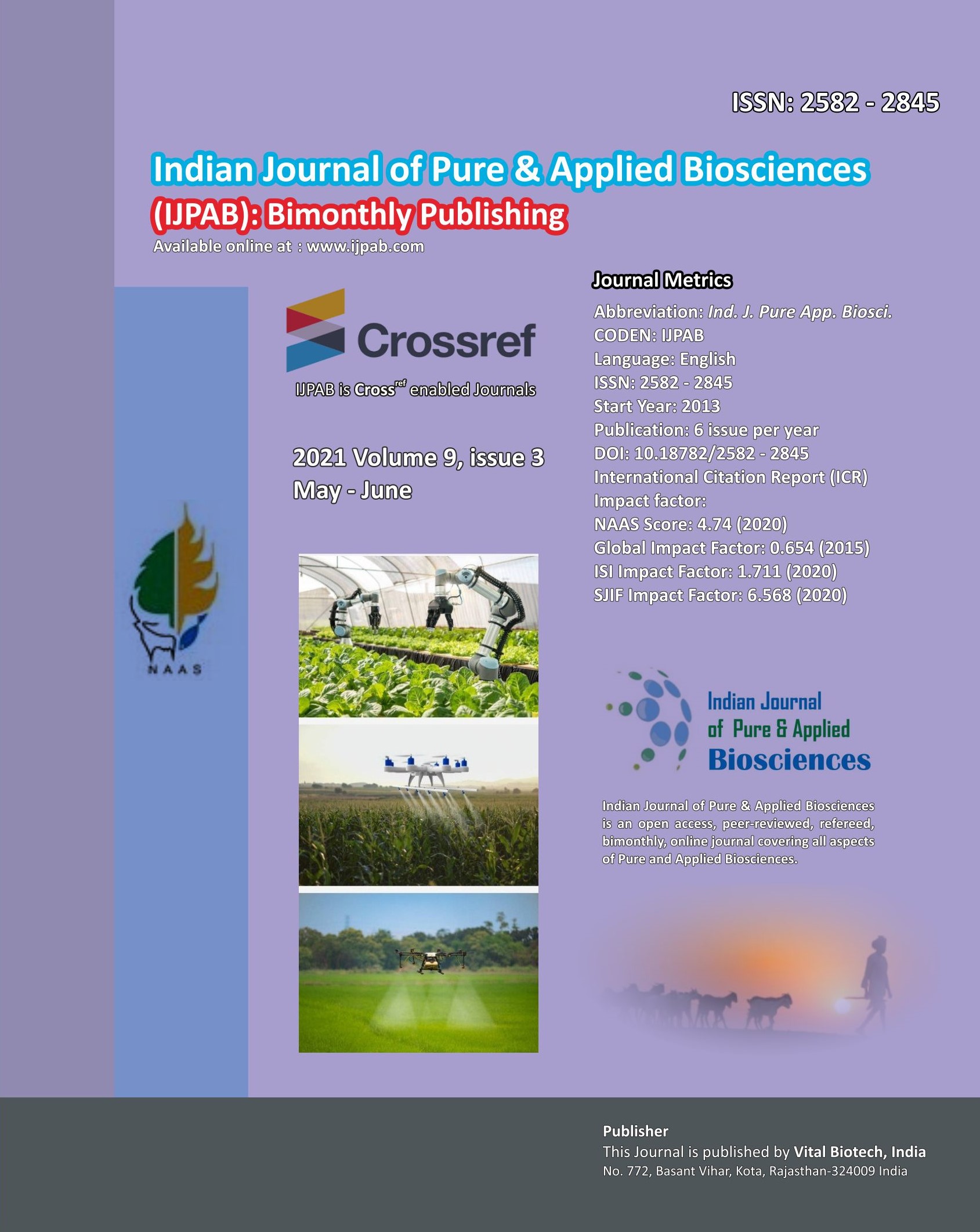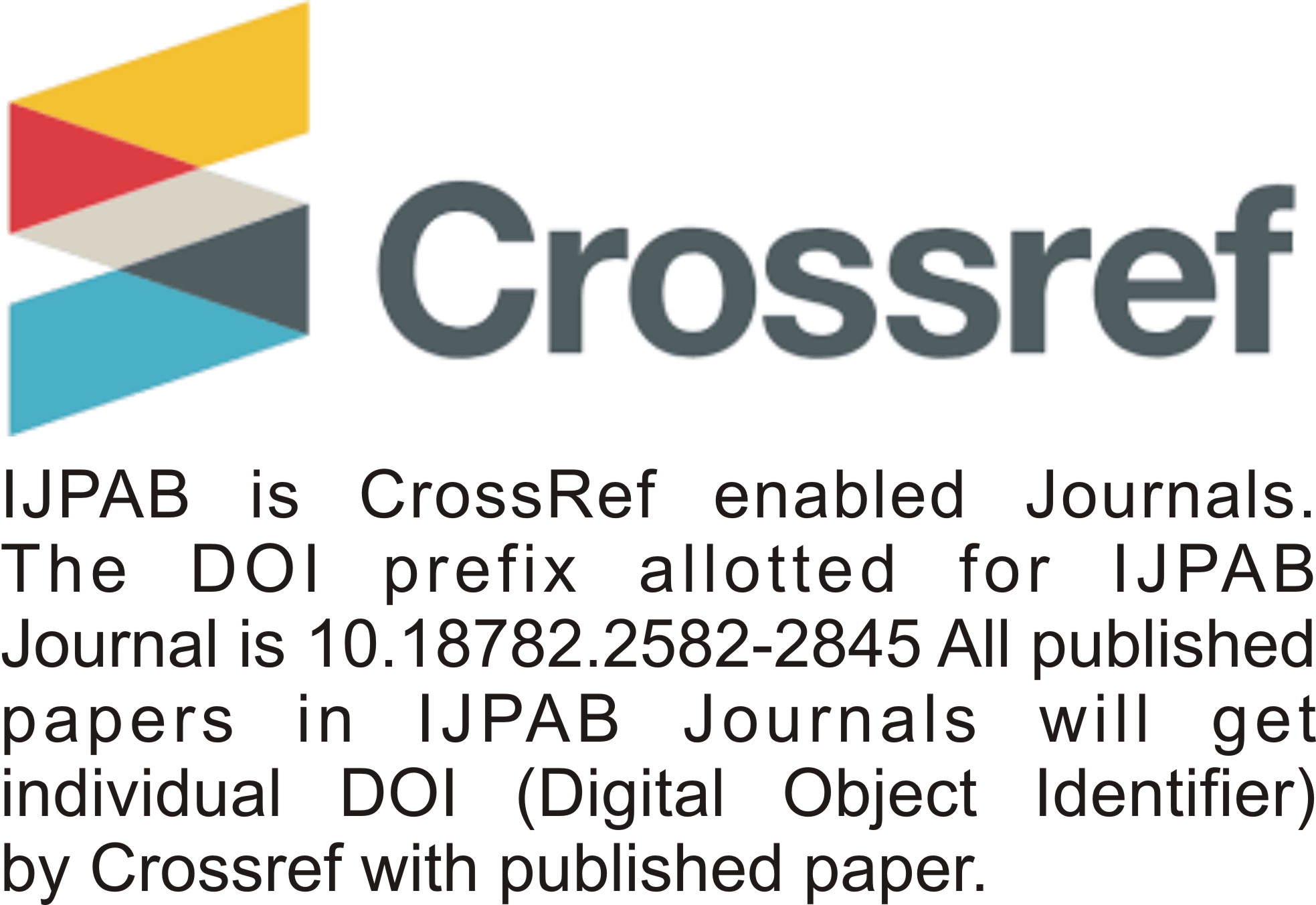-
No. 772, Basant Vihar, Kota
Rajasthan-324009 India
-
Call Us On
+91 9784677044
-
Mail Us @
editor@ijpab.com
Indian Journal of Pure & Applied Biosciences (IJPAB)
Year : 2021, Volume : 9, Issue : 3
First page : (247) Last page : (256)
Article doi: : http://dx.doi.org/10.18782/2582-2845.8737
Impact of Livestock Enteric Emission on Climate and its Mitigation
Shahzada Mudasir Rashid1*, Nousheen Qadri1, Nazish Shah1, Subata Mehboob2, Insha Amin1, Muneeb U Rehman1
1Division of Veterinary Biochemistry, Faculty of Veterinary Sciences & Animal Husbandry,
2Division of Animal Nutrition, Faculty of Veterinary Sciences & Animal Husbandry,
Sheri Kashmir University of Agricultural Science & Technology (SKUAST-K),
Alustang, Shuhama, Srinagar, J&K, India 190006
*Corresponding Author E-mail: mudasir@skuastkashmir.ac.in
Received: 5.05.2021 | Revised: 9.06.2021 | Accepted: 17.06.2021
ABSTRACT
The increase in production of greenhouse gases is a major cause of global warming for which livestock holds a big share in total greenhouse gas emission annually. The greenhouse gases produced by livestock include carbon dioxide, methane, nitrous oxide etc. Cattle and buffalo are the major contributors responsible for 90% emission of GHG followed by sheep and goat. Increase in carbon dioxide emission by livestock, decaying of dung in absence of oxygen, enteric fermentations are the major sources of greenhouse gas production by livestock species. Owing to greenhouse effect, the elevated greenhouse gases cause global warming resulting in the increase of surface temperature of earth, decreased precipitation, and huge damage to environment and affect the flora and fauna turning the conditions on earth unfavorable for survival of living forms. The major impacts are loss of biodiversity, loss of habitat for animals and plants, uncertainty in climate, increase in livestock diseases, damage to feed sources (plants), decrease in productivity of livestock species and many more. Mitigation measures needed to be focused on decreasing the global meat consumption, implementing carbon tax, feeding dietary oils/nitrates, manure management and its biodigestion, genetic manipulations besides strengthening of global livestock environmental assessment models.
Keywords: Green House Gases, Carbon dioxide, Enteric fermentation, Carbon Tax, Cattle.
Full Text : PDF; Journal doi : http://dx.doi.org/10.18782
Cite this article: Rashid, S. M., Qadri, N., Shah, N., Mehboob, S., Amin, I., & Rehman, M. (2021). Impact of Livestock Enteric Emission on Climate and its Mitigation, Ind. J. Pure App. Biosci. 9(3), 247-256. doi: http://dx.doi.org/10.18782/2582-2845.8737


